
Sex, violence, and family dynamics of animals in David Attenborough’s new BBC series
- Dynasties: The Greatest of Their Kind delivers an intimate and intense look at five animal species – chimpanzees, lions, tigers, penguins and painted wolves
- A Chinese co-production, the series also sends a message about how humankind is shrinking the space for wildlife to survive
David is a knuckle-dragging brute with the puffed-out chest of an extreme alpha male and cauliflower ears that would not look out of place on a boxer. His boldness and ambition have seen him climb up the hierarchy to become master of all he surveys.
This is not Sir David Attenborough, but his namesake, the chimpanzee star of the first episode of the naturalist’s new BBC series, Dynasties: The Greatest of Their Kind.
David Attenborough talks about Blue Planet II and the plastic threat
Executive producer Michael Gunton says he had nothing to do with the ape’s serendipitous name. “All these names are given to these creatures by the scientists who work in the field,” he insists. “We haven’t come up with any. And if we had, we would definitely not have called him David.”
We are living in political times as tumultuous as any of the brutal fight scenes in this natural history epic. Yet when Attenborough rolls up in his open-topped jeep to introduce the series (co-produced with Chinese companies Tencent Penguin Pictures and CCTV9), all seems OK in the world.
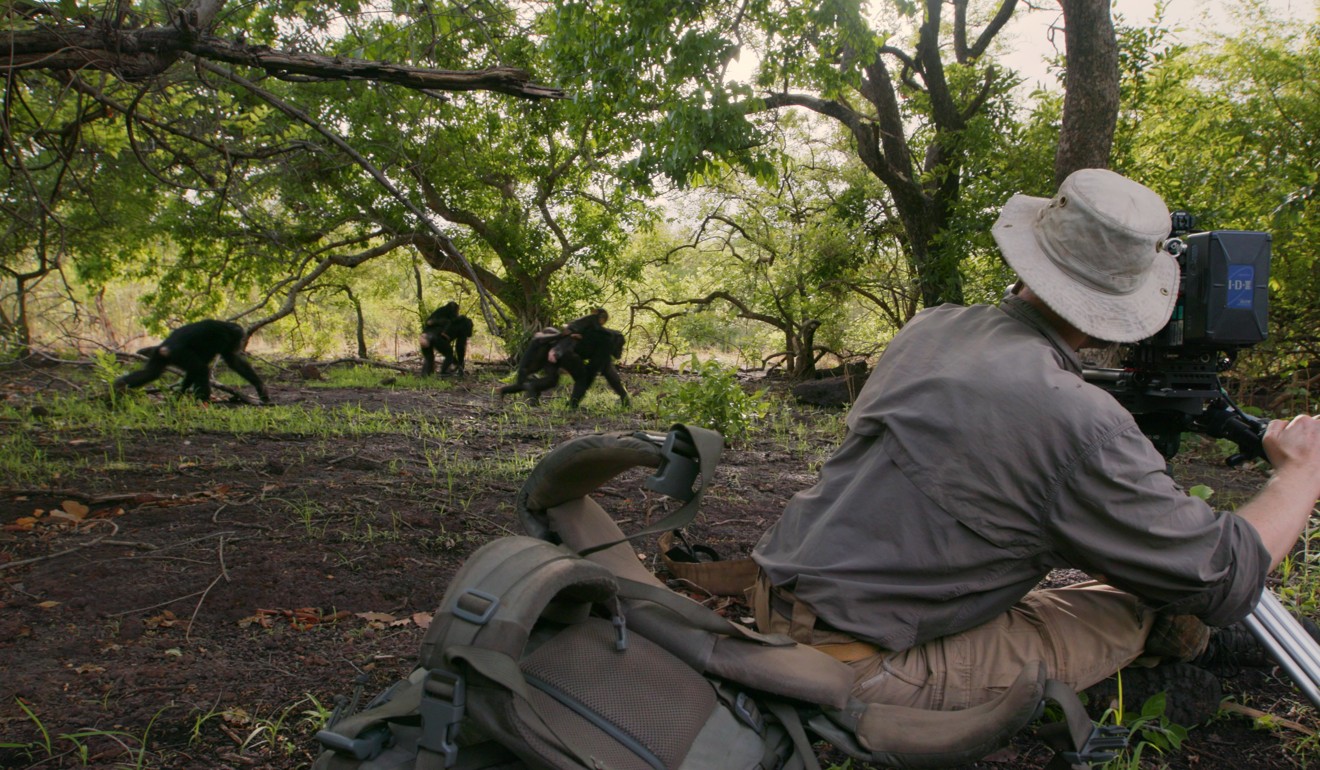
In his creased blue short-sleeved shirt, and at 92, the TV titan may look slightly more rumpled than we are used to, but his voice, which punctuates every dramatic moment of the five episodes, is as potent and magisterial as ever.
The species that star in each of the episodes could not be more familiar: chimpanzees on the edge of the Sahara, emperor penguins on the coast of Antarctica, lions in Kenya’s Masai Mara, painted wolves on the plains of Zimbabwe, and tigers in the jungles of India.
However, the genre is venturing into new territory with a spotlight on individual families and the dynamics that define their survival. The rulers – the Davids of their kingdoms – are the winners who take it all; all the food and all the mating prospects. As their rivals grapple for dominance, though, their grip on power is as precarious as the very concept of the show.
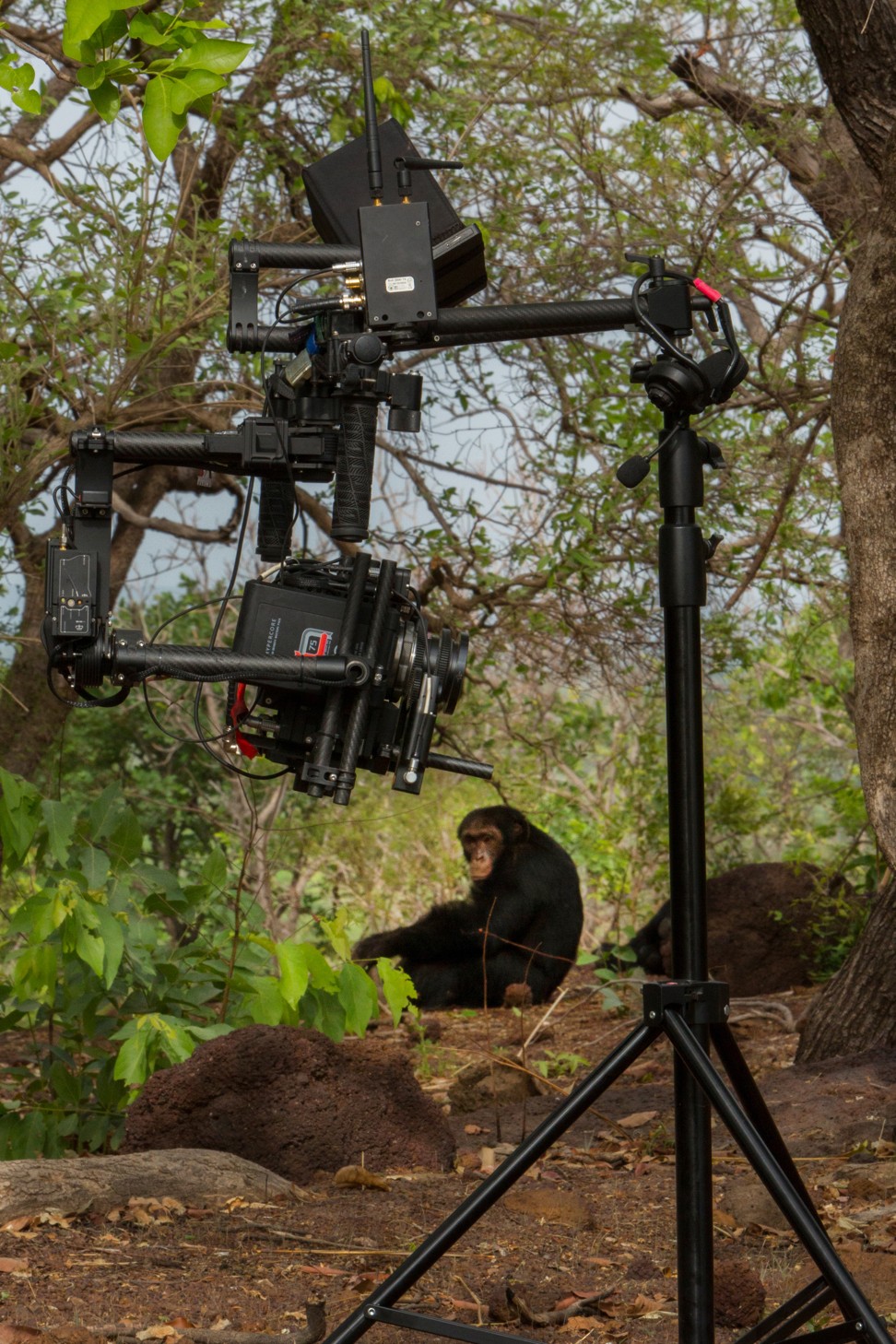
Attenborough, who made his first natural history programme in 1954, told Gunton he thought he was mad when he first heard the idea. By funnelling all their time, and multimillion-pound budget, into following just one chimpanzee troop or wolf pack for up to 2½ years, producers left no room for error and no contingency if either the animals failed to provide the goods, or the camera operators missed a once-in-a-lifetime scene that was pivotal to the narrative. They also had no idea how each story would end.
“Economically, that’s almost impossible really,” Attenborough explains at the series’ global launch at the British Academy of Film and Television Arts in London.
“How he sold it, I can’t think. Because if he tried to sell it to me, I’d say ‘You’re crazy’. To actually put in that kind of investment … nothing might happen. You might just go out there day after day and see the same old business – chew a bit more grass, push off a wildebeest, and migrate.”
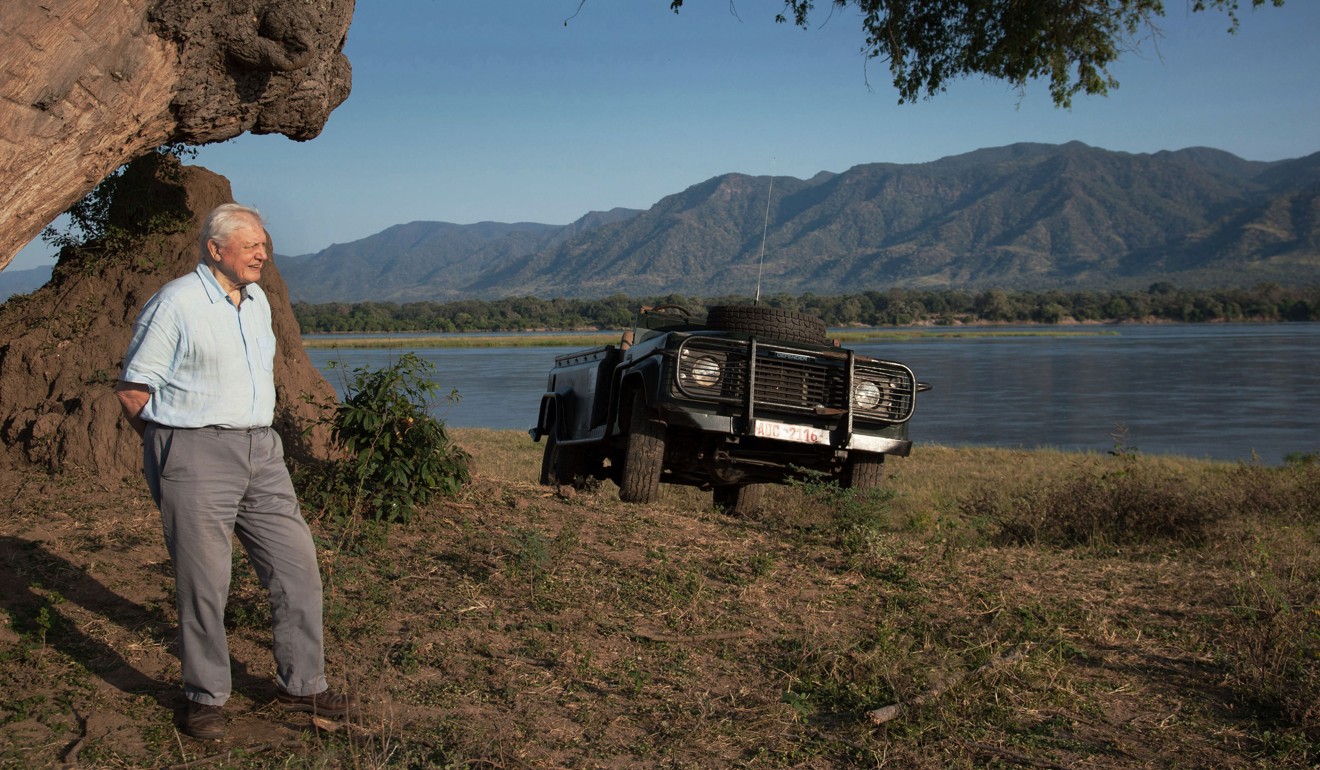
Series producer Rupert Barrington says he was initially reluctant to commit to the programme. “It’s definitely the riskiest thing I’ve been involved in. There are so many things that can go wrong when you put all of your resources in one basket. If David had been killed in the first three weeks of filming, where do you go from there?”
Suffice to say, the gamble paid off. The result is a set of films that have all the elements of a big-screen thriller. That said, even a hardened Hollywood producer may balk at some of the things on display.
The ape mating scene is, admittedly, filmed demurely through foliage, and Attenborough’s voice-over errs on the side of subtlety (“Three females have become sexually receptive at the same time”). But the pink and swollen genitals of the females are anything but discreet. And the violence – including David’s rival attacking an elderly female as part of a display of authority – may shock viewers of a nervous disposition.
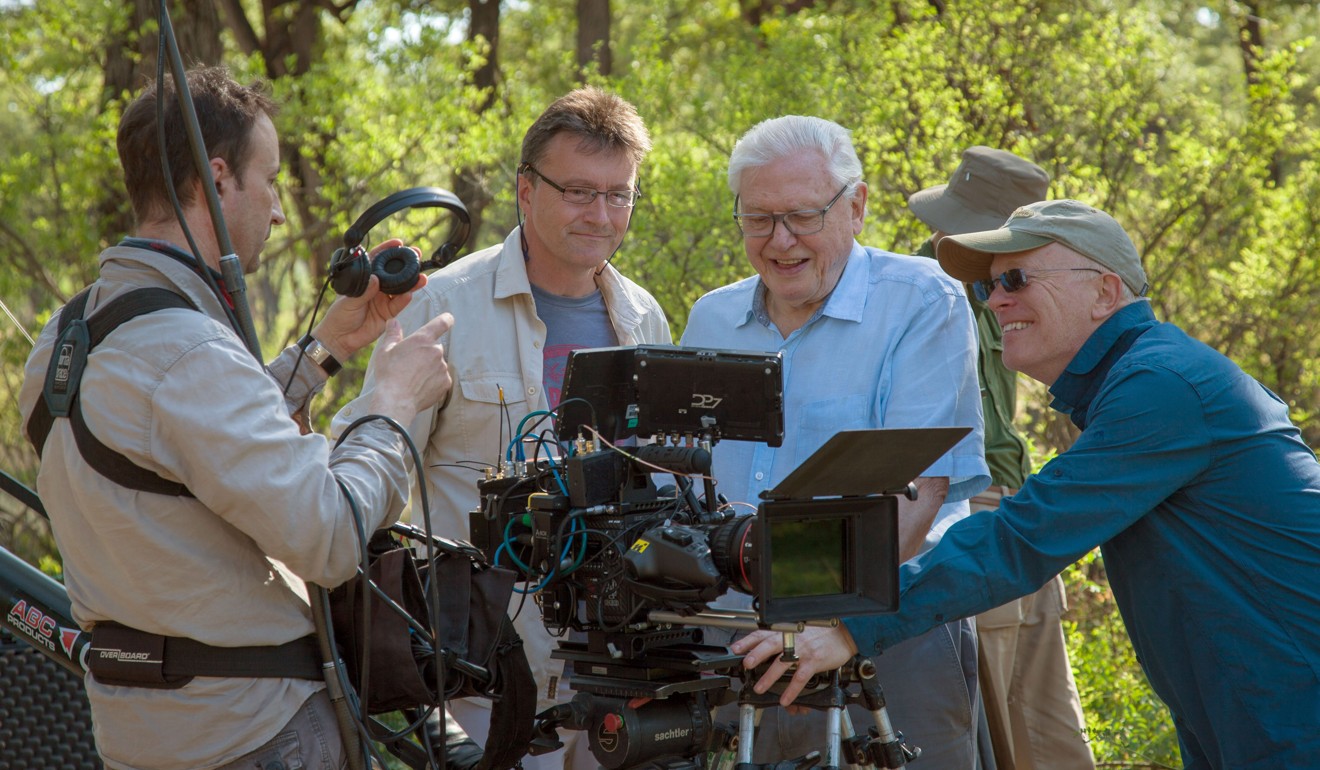
Also on view are the gruesome war wounds inflicted on David as he lies on the ground, left for dead. The camera lingers on his severed thumb and an oozing gash on his thigh. There are several, more fleeting, glimpses of a laceration to his testicles.
All in all, the focus ends up being less on traditional wildlife TV fare – hunting and mating – and more on animal statecraft.
In episode one, we see David – compared by a cameraman to Marlon Brando – doing everything to hold on to power, including grooming the fur of an elder statesman of the community to curry favour.
May sends message on plastic waste with Blue Planet box set for Xi
“There is a whole section of primate research led by a Dutch biologist called Frans de Waal,” Attenborough says. “His major work is called Chimpanzee Politics, and so the notion is not a fanciful showbiz one. It is actually a serious one because they are working out what causes dominance, how do you create dominance, how do you get allies and so on?”
Gunton adds: “We sort of cast these creatures, and part of the reason for the choice was that these were going to be political stories. It is kind of the basis for Shakespeare and The Sopranos and The Godfather – it’s all about interfamily politics.”
These sorts of programmes usually end up being a glorious tonic for us humans – life-affirming proof of the eternal beauty of nature, regardless of transient human catastrophe (as Attenborough said last time we met: “We come home at night – and that’s what we want to watch”).
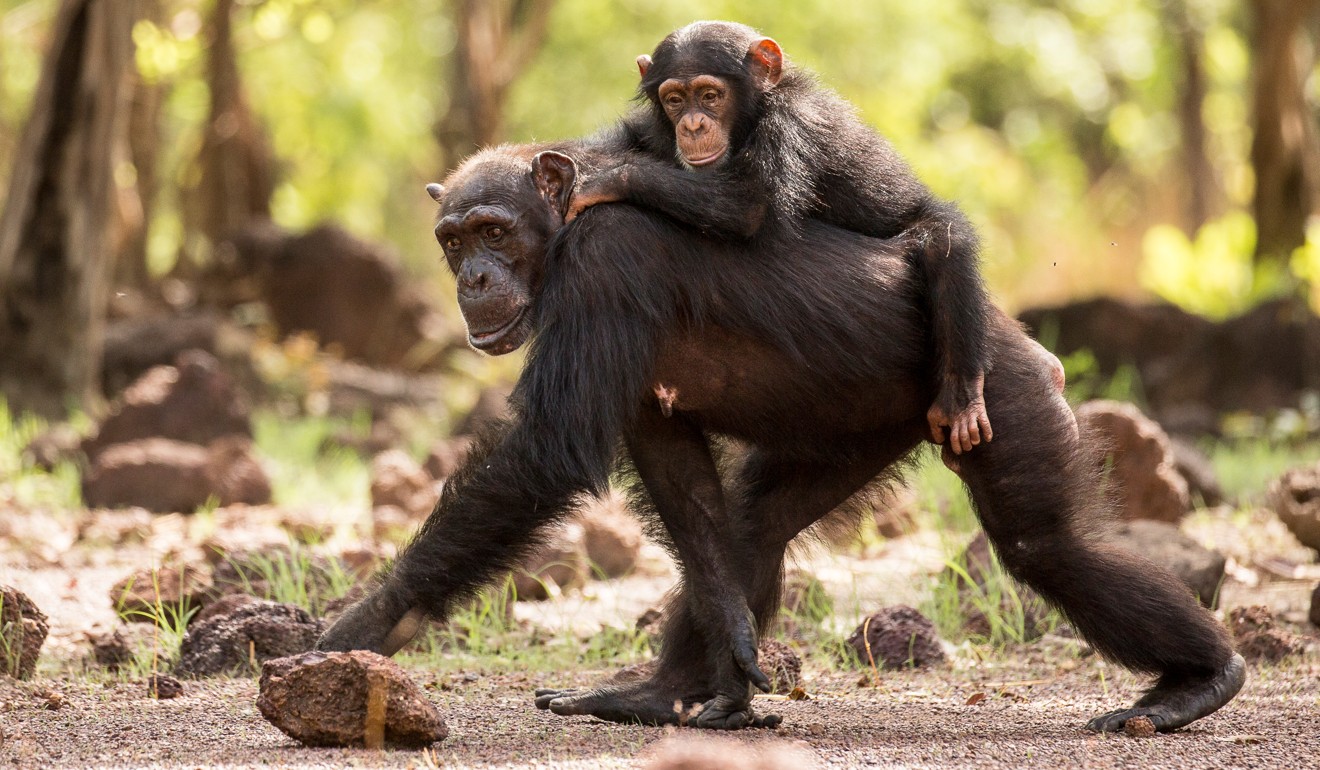
But the message of this series is every bit as sobering as the anti-plastic warning delivered by the last BBC blockbuster, Blue Planet II, whose shock waves are still rippling across the world, a year after it was released.
The message this time is about space. As human over-consumption continues apace, we are increasingly colonising the habitats of our animal neighbours, whether through mineral mining or agriculture – and with devastating consequences. Only 6,600 painted wolves are left in the wild. Lion numbers have dropped by nearly half in two decades.
“One of the things about space is it is not as sexy as plastic,” says Gunton. “And it’s a much bigger issue.”
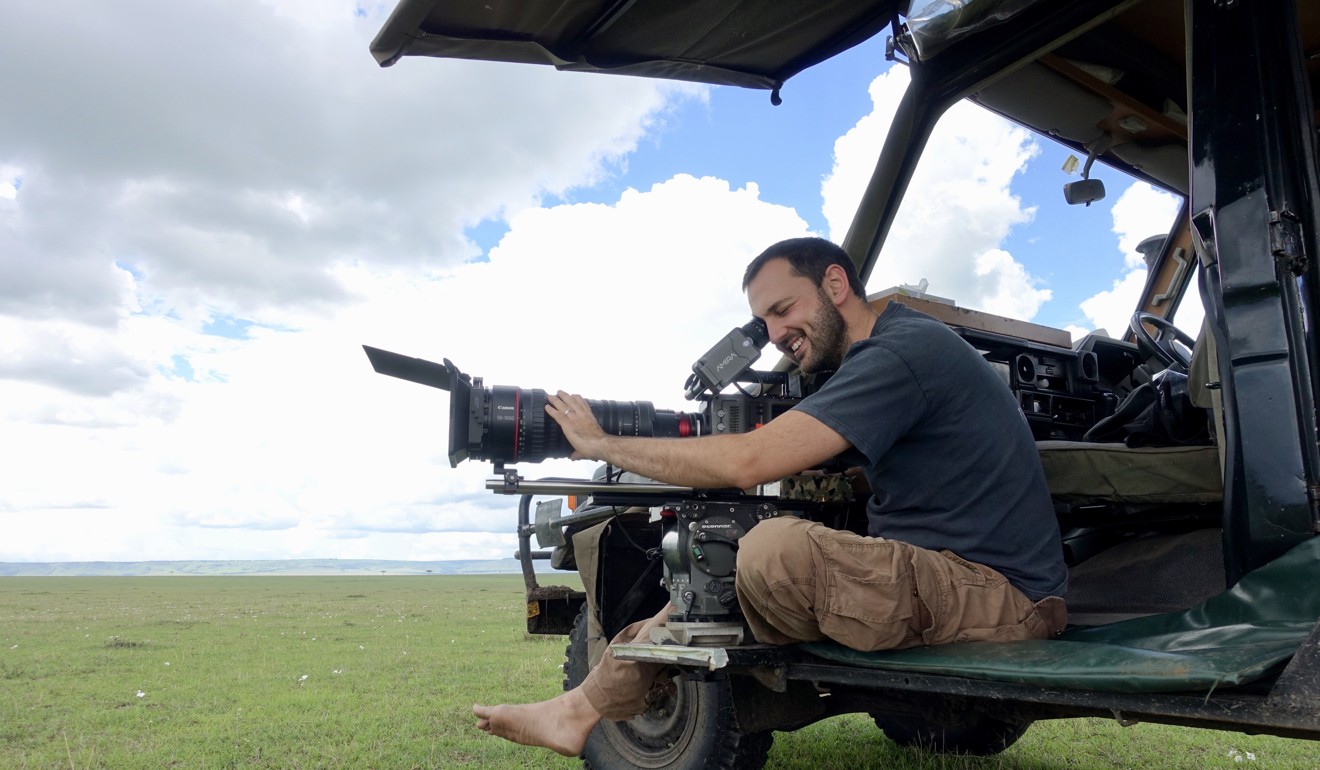
In one episode, we see herdsmen retaliate against a pride of lions for eating some of their cattle, by laying out a poisoned carcass for them to feed on. “Suddenly you zoom into individual lives directly impacted by this much bigger problem, which is that people and animals are bumping into each other all around those boundaries in the Mara.”
The dedication of the filmmakers to capture all of this was immense. The crew for the chimp episode walked up to 24km a day carrying 80kg of kit in 40 degrees Celsius heat. The penguin team spent 62 days without seeing the sun and six months without fresh food in wind speeds of up to 129km/h and temperatures of minus 40 degrees.
Meanwhile, the tiger watchers – who were stung by bees as many as 12 times in 30 seconds – spent 2,000 hours wedged in two square metres of space in the back of a car waiting for their magic moment of celluloid.
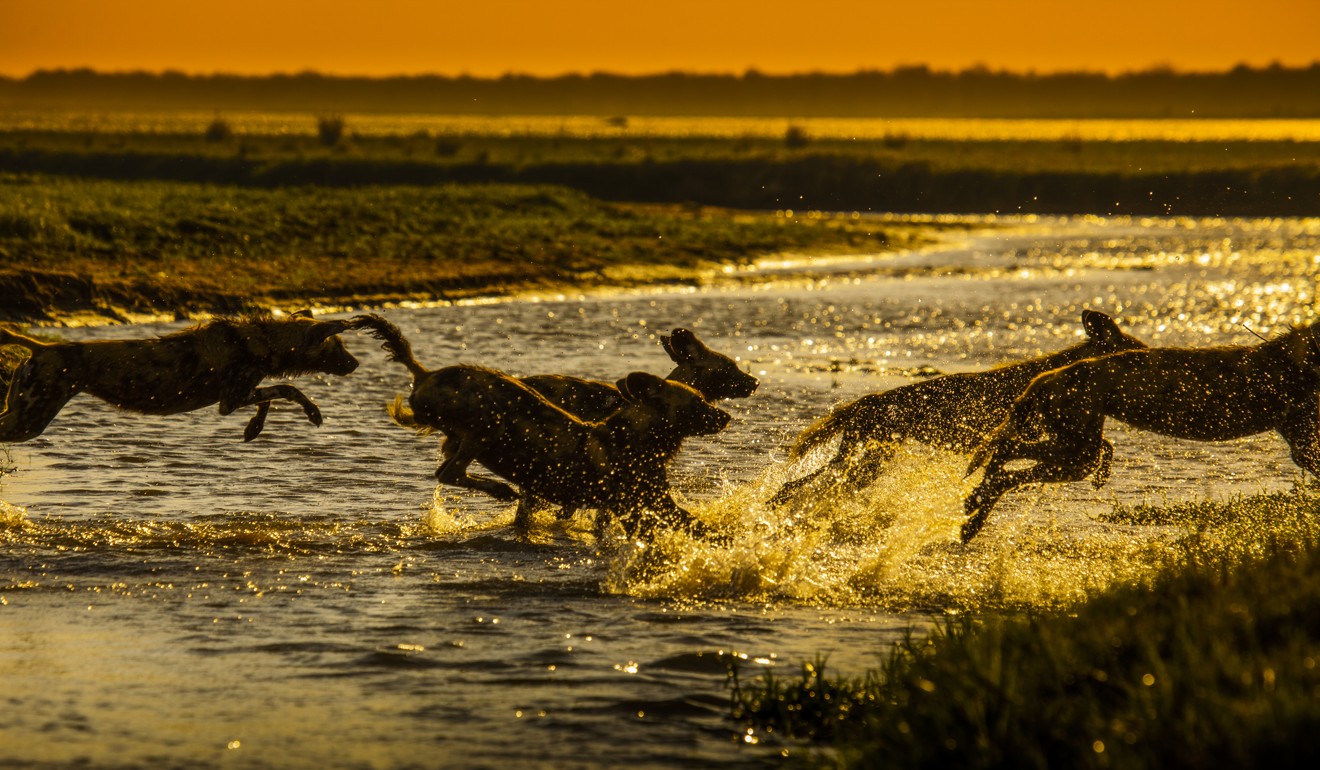
Producer and director Rosie Thomas dramatically cut short her maternity leave to return to the chimps, who she says became like her friends.
Penguin cameraman Lindsay McCrae knew he would miss the birth of his first baby because he would be stuck thanks to an Antarctic winter that cut his team off from any escape route for eight months. He spent weeks sitting on the ice to get the best angle, and filmed the male emperors huddling over their eggs to protect them as the females went off to the open ocean for food (as BBC colleague Chris Packham joked to McCrae: “Apart from a reversal in the sexes, there was a metaphor there for what was going on back at home”).
Asked for his highlight of Dynasties, Attenborough picks the penguins. But it is not the animals he was most impressed with.
New wave of Chinese documentaries a hit at home and overseas
Talking of McCrae, he says: “I suppose if you had to pick one – it was that he was there when the very first little chip came in the egg as it was sitting on daddy’s feet. Well, you had to be there a long time – there was no going back for a hot cup of coffee. And he got a whole sequence of perfect penguin shots.
“It’s not so much what it said about the animal’s life. What it said about was his dedication to making sure that he was going to get everything.”
Dynasties: The Greatest of Their Kind premiered on BBC Earth on November 12

